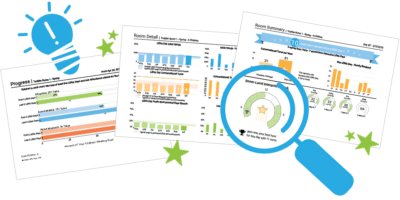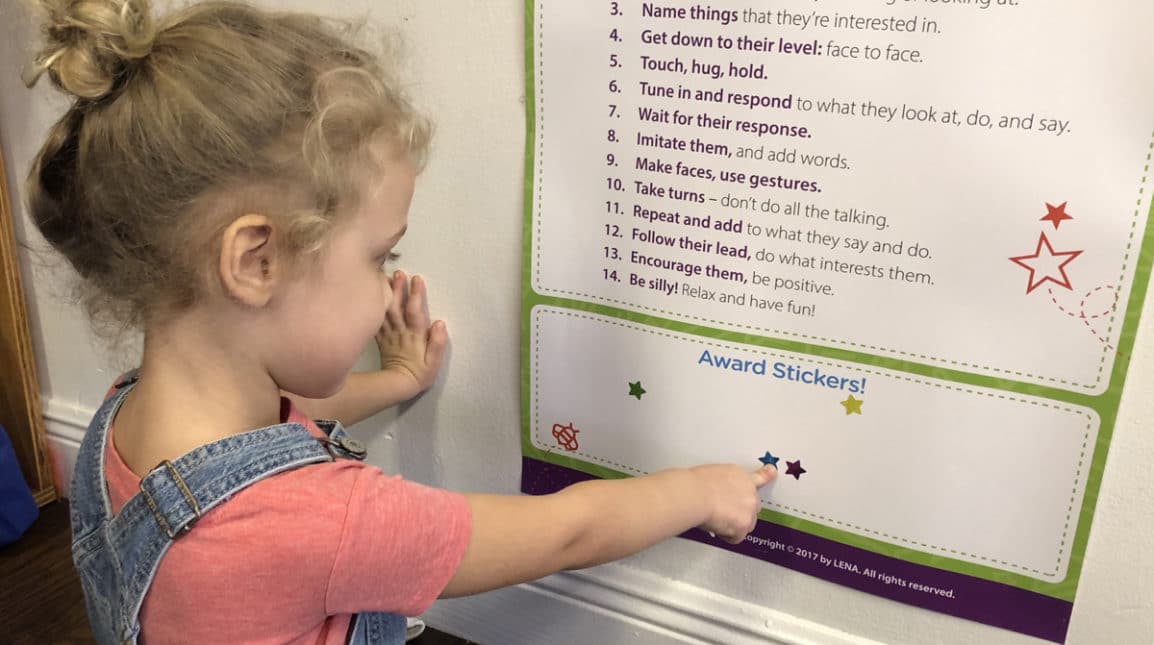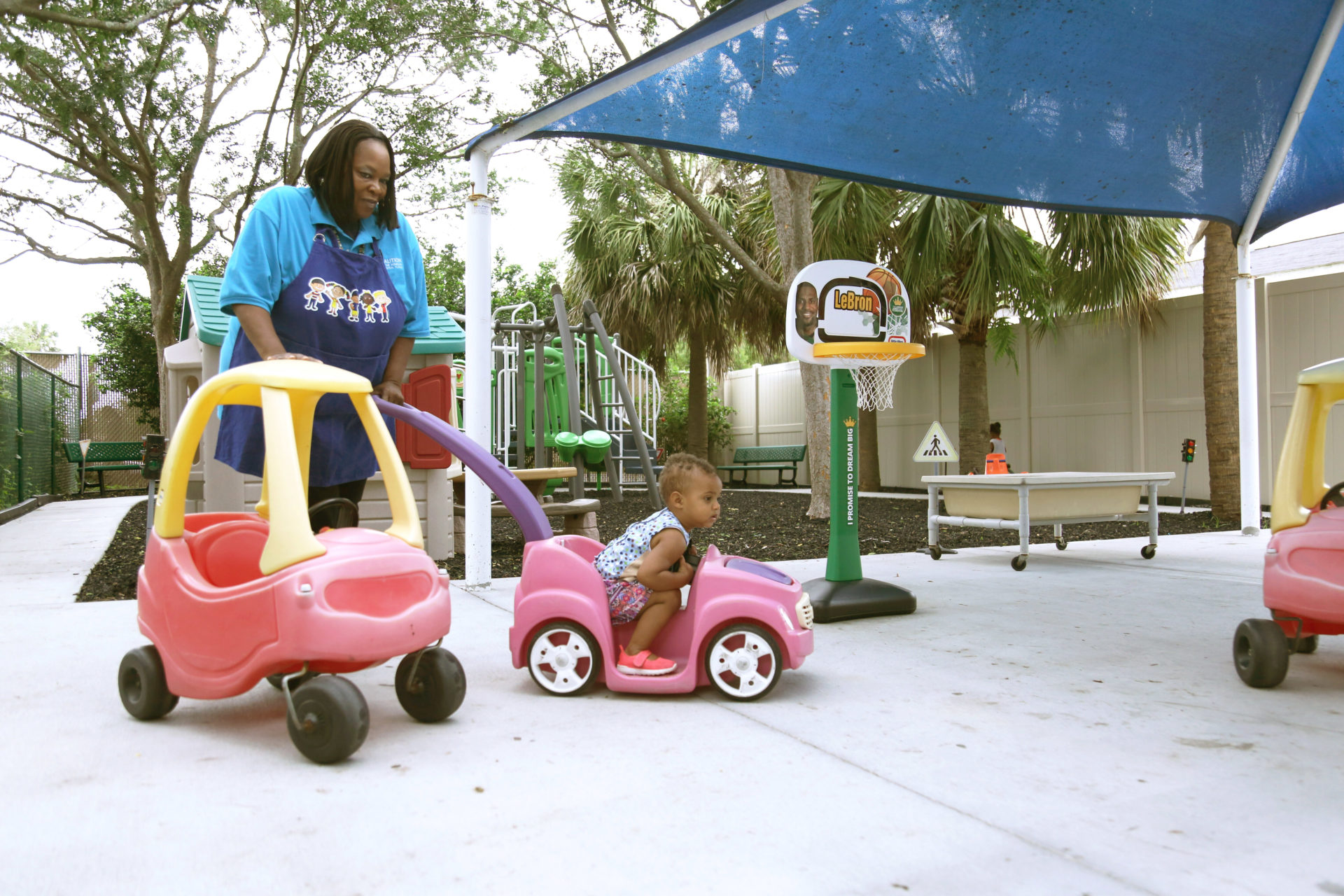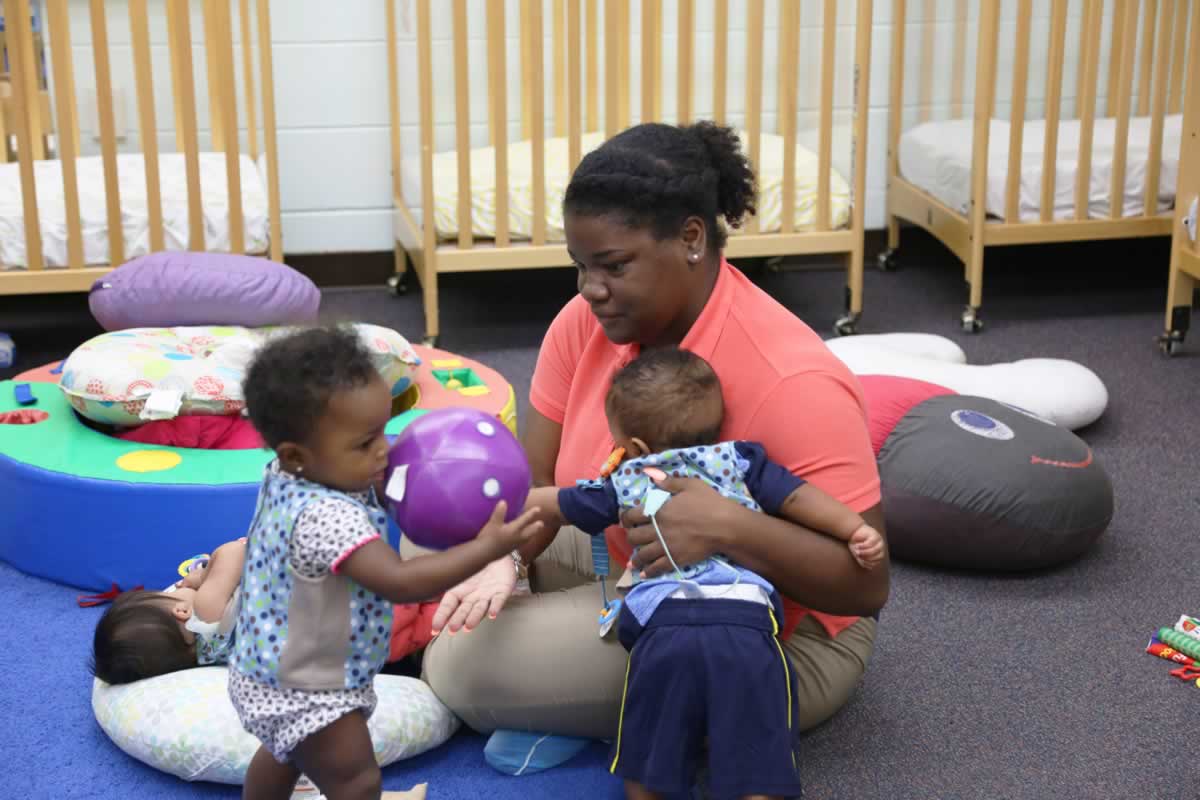This post was originally published March 30, 2021. It has been updated with data on CLASS® and TS GOLD® scores from additional sites and classrooms. Claudia Malecki, who is quoted in the post, has since retired from her position as Quality Services Manager.
“I kept saying, week after week, ‘Does everybody do this well?’”
That was Kathy Cestaro’s reaction to the LENA Grow reports she was seeing. Cestaro is an early childhood specialist with the Early Learning Coalition of Sarasota County (ELC of Sarasota) in Florida, and her first experience with LENA came in the fall of 2020. With funds from a United Way grant, ELC of Sarasota implemented LENA Grow in five classrooms across two sites. Since then, an additional 24 classrooms and four sites have participated, with continued funding through the Community Foundation of Sarasota County. On a weekly basis, Cestaro conducted coaching sessions with each of the teachers participating in the program.
Both at the level of the classroom and the individual child alike, the results have been remarkable, to say the least.

“Actually seeing the numbers on the paper was eye-opening,” Cestaro said. “The idea that ‘you can’t improve what you don’t measure’ has really rung true for me, and it’s rung true for teachers.”
Claudia Malecki, quality services manager at ELC of Sarasota, had a similar thought: “Our focus at the coalition is to prepare those children for elementary school. When you pull out those charts and they see those circles and that it’s improving, the teachers understand that.”
Room-level improvements: Increased CLASS® scores
In total, 13 of the 29 participating classrooms had CLASS® assessments before and after their LENA Grow sequences. Overall scores increased significantly from before the program to after the program.
On average, scores increased in all three domains — CLASS® assessments are comprised of Emotional Support, Classroom Organization, and Instructional Support. In addition, scores increased in nine of the 10 individual dimensions. The most consistent substantial increases occurred in the Instructional Support domain, where all three dimensions increased by approximately 10%.
These results are consistent with previous pre/post CLASS® assessments among LENA Grow classrooms in California, Texas, Wisconsin, and a different early learning coalition in Florida. ELC of Sarasota’s baseline scores were relatively high, making the consistent gains all the more impressive.
Child-level improvements: Increased TS GOLD® scores
Over and above giving teachers a picture of their classroom’s overall language environment, LENA Grow is designed to deliver insights into each individual child’s experience. Of particular interest, then, is the fact that children participating in LENA Grow at ELC of Sarasota have experienced significant increases in their TS GOLD® scores.
For instance, 88% of the 176 participating children saw an increase in total raw language scores on the TS Gold® assessment.
Furthermore, there were 45 children who began the program below “widely held expectations” (WHE), which is a measure that “describes the range of knowledge, skills, and abilities that children of a particular age or class/grade typically demonstrate over a year of life.” By the end of the program, 30 of those children improved their TS GOLD® scores from below WHE to either meeting or exceeding WHE. Conversely, only 10 of 131 children regressed from meeting or exceeding WHE to below WHE.
In all, 26% of the children landed in the below WHE designation at the start of the program. By the end of the program, that percentage had dropped to 14%, a statistically significant reduction.
Going beyond the numbers: Community impact with LENA Grow
Numbers like these emphasize the multiple roles that LENA’s technology plays:
On the one hand, the reports from LENA’s “talk pedometer” tell the story of individual children’s growth. Combined with the strengths-based coaching that accompanies them, these reports help individual teachers commit to improving their conversational skills. In turn, of course, this helps children experience more back-and-forth interactions, which has lasting impact on their school readiness.
On the other hand, the reports paint a bigger picture: a picture of how individual children’s growth can be scaled up to community-wide growth.
“The grant we secured was for a part of our county where the most at-risk children go to child care,” Cestaro said. “They need this. They need teachers who are talking to them and having conversational turns with them.”
Sarasota County has around 180 child care centers, of which around 125 work with ELC of Sarasota to maintain a “Star Quality” rating. Malecki, for one, has been in the field since 1980. She’s seen an increased awareness of the importance of early childhood education, and she’s seen a rise in the number of parents asking questions about quality instead of just price and location.
“Back then,” she said, “child care was considered a place where the kiddos were taken care of when everyone went to work. More and more, communities have realized that if they invest in these little ones there are important benefits, because it influences grade-level reading, it influences the literacy rate as they enter the workforce, and it even influences the incarceration rate later on in life.”
It all comes back to the teacher
In Sarasota County, the teachers’ buy-in was strong. They made a concerted effort to put LENA”s Talking Tips and Conversation Starter posters into practice. Using the LENA Logs within their Teacher Workbooks, they kept track of the classroom’s daily activities and made connections between different activities and spikes or valleys in conversational turns.
One tactic that worked especially well: During small group time, the teacher would leave out an object related to a book the class had read together. The children took notice, the teacher acknowledged that they had taken notice, and the LENA device reported significant upticks in conversational turns for multiple children.
“The teachers were challenging themselves,” Cestaro said. “I would get there for a coaching session, and they could not wait to see their reports. They were so anxious to see if they met their goal, if they did better than the prior week.”
Both Cestaro and Malecki have come to see the power of empowering teachers to teach. They recognize that the quality of a classroom has just as much to do with the quality of teacher-student interaction and family engagement as it does with the quantity of toys, books, and games. In line with Malecki’s thoughts on how communities have made great strides in recognizing the importance of early childhood education, they think early childhood educators and child care workers deserve greater recognition of the importance of the profession.
While they continue to advocate for large-scale improvements on a policy level, Cestaro and Malecki do what they can themselves. Unbeknownst to the teachers until after the LENA Grow cycle had ended, ELC of Sarasota rewarded them with stipends for having participated in the program.
Does everybody do this well with LENA Grow?
To go back to Cestaro’s question — “Does everybody do this well?” — the answer is no. And that’s okay.
Even if these CLASS® and TS GOLD® numbers don’t stay as remarkable year after year, Cestaro and Malecki agree that the skills LENA Grow coaches for will stick with teachers well into the future. To be clear, though, independent program evaluations show promise that quantifiable results like this will continue to be commonplace among Grow participants.
What’s more, survey results show that LENA Grow increases teachers’ job satisfaction and feelings of self-efficacy, which can’t be overestimated in a world where economic realities are forcing early educators out of the profession. In an early learning landscape where quality improvement systems may fail to reflect children’s actual experiences, a professional development program that focuses on building real relationships can make all the difference.








One Comment on “Coaching for impact in Sarasota County: Increased TS GOLD® and CLASS® scores”
Thank you, great information.